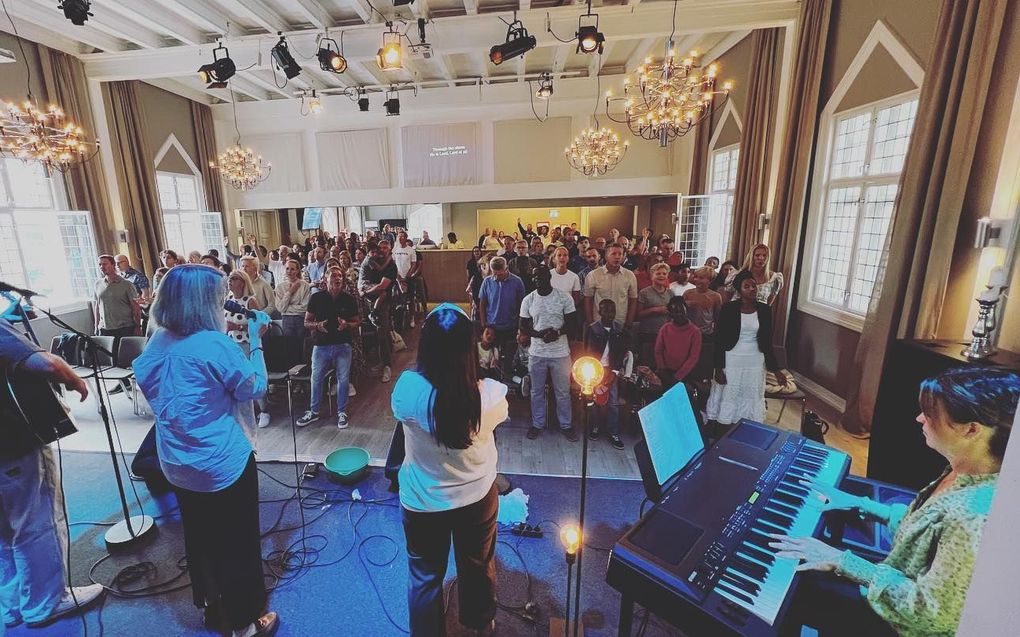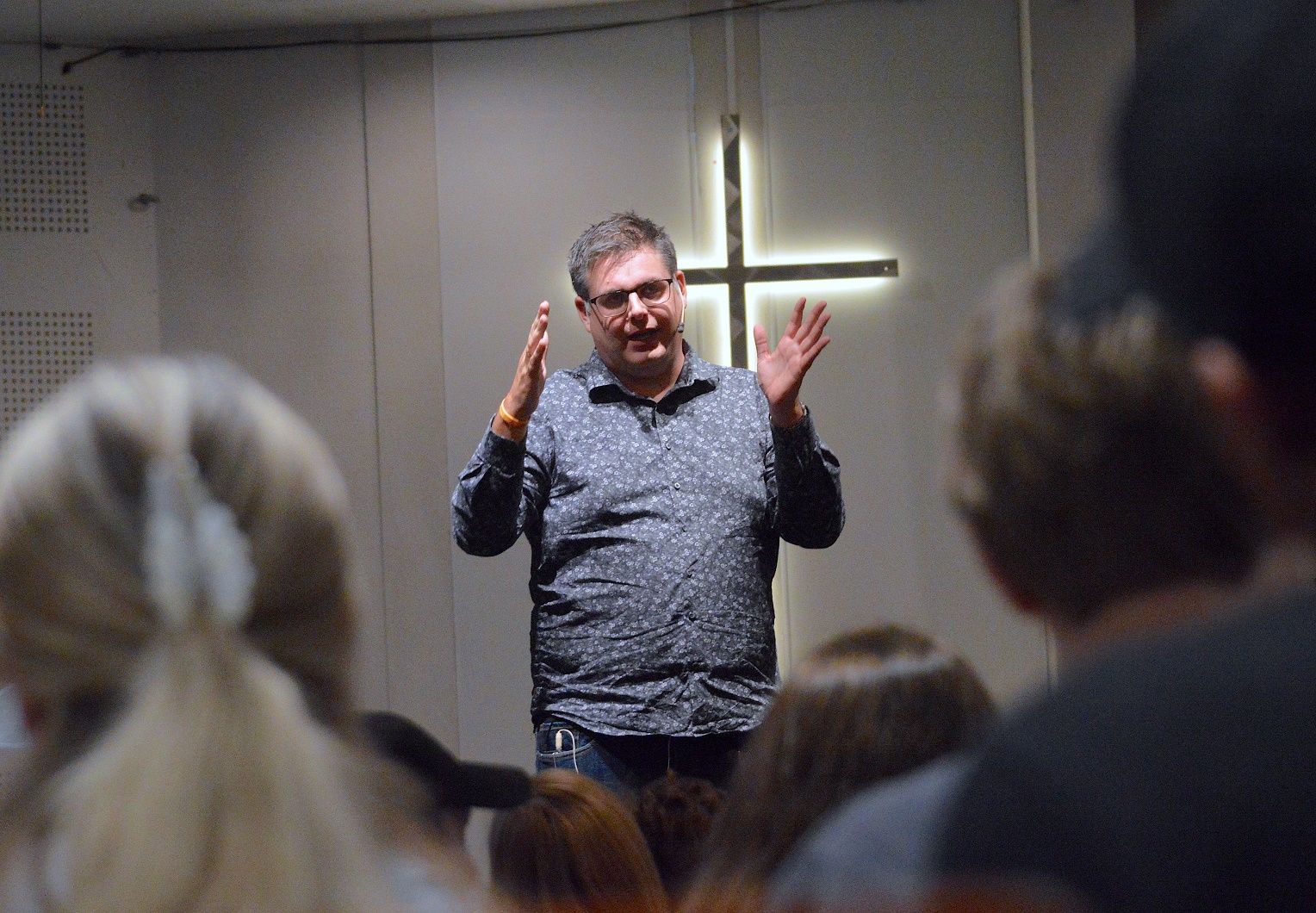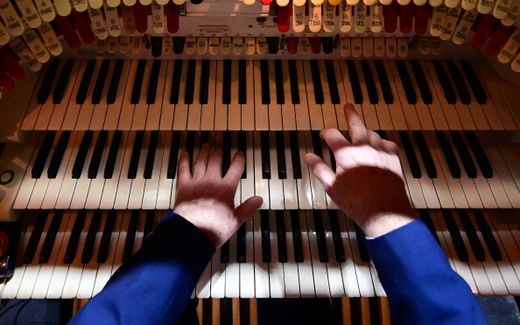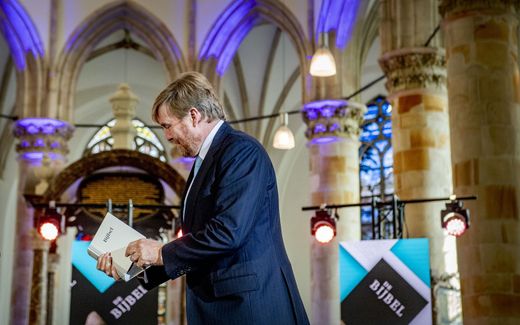Young people build their theology on worship texts rather than on the Bible
03-11-2022
Northern Europe
Stein Gudvangen, KPK

Worship in a Norwegian church. Photo Facebook, Pinsekirken Sandvika
Northern Europe
Worship lyrics have a bigger influence on young people than Bible verses and preaching, figures from Norway and Sweden show. This causes unrest among Christian leaders.
The Norwegian PhD candidate Roald Zeiffert found out after research that many young people rarely read the Bible and base their theology more on religious song texts than scriptures. His findings correspond with developments in Sweden. The Swedish newspaper Dagen recently wrote wrote about a survey in which it appears that praise is ranked as more important than preaching and Bible texts when young people have to state what influences their faith the most.
Linda Andernach Johannesen works daily for the youth of the Mission Covenant Church of Norway. She does not want to make young people targets of criticism and believes that it is adults who have the greatest responsibility anyway. "I can imagine that this does not only apply to young people. There are probably many parents and grandparents who don't read the Bible regularly either. Young people have learned from someone, so if someone is to be pointed at, it is the parents’ generation and leaders in the congregations."
Waves
Roald Zeiffert is a Baptist with several years of pastoral experience. He is now a lecturer at the University of Management and Theology in Bærum, Norway, and also a doctoral student at the University of Agder in Kristiansand. He is in the final phase of an ongoing research project on the faith of Christian youth. In the project, he works with concepts such as conversion and the Bible's role in young believers' lives.

661 young people aged 15 to 25 in Norwegian low church circles and free church environments have responded to Zeiffert's extensive questionnaire. In addition he has interviewed 25 of them in depth.
During a seminar in a conference last week, he gave the listeners an insight into some of the research results. To the Norwegian press agency Kristelig Pressekontor, he confirms that Bible reading among young Christians is not too common.
In his survey, 36 per cent of young Christians say that the Bible is not that important to them and that they rarely read it. Through the qualitative interviews, it emerges that Bible reading for many goes in waves, meaning they read it more thoroughly on and off.
One of the respondents says he has mixed feelings about the Bible. He sees it as sacred, without relating strongly to it, and he resorts to praise and fellowship rather than Bible reading.
If the pastor in you has a chat with the sociologist, is he worried?
"Yes", answers Zeiffert quickly and emphatically. "But at the same time, I'm not very surprised."
Responsibility
Zeiffert believes the results of the surveys in both Norway and Sweden indicate that those who write and perform hymn texts should see their responsibility since so many young Christians attach so much importance to them. "Praise leaders should ensure even more quality in their texts", he says. Zeiffert has the impression that there has been some improvement in the field in recent years.
Do you interpret the research to mean that the Bible is devalued by Christian youth?
“Yes, but not in a way that they distance themselves from the contents of the Bible. Most of the young people in my survey believe that the Bible is the word of God but they have a distant relationship to it.
Zeiffert emphasises that there are also positive exceptions. "Those who read the Bible, often do so with others. One trend is that young people deliberately move in together in Christian collectives in order to have a Christian community and study the Bible together. Then they at least have the intention to read the Bible."
Parents
Zeiffert’s research shows that 8 out of 10 who say they believe have at least one parent who is a Christian and who is active in church. Based on Zeiffert's material it is obvious that parents' church affiliation is of the greatest importance. Less than 1 per cent of 661 respondents had parents with a non-Christian faith. Only one Christian youth had a father with a different religious affiliation, and three had a mother with another faith.
Also the mother turns out to be the most important influencer for Christian youth.
The participants in the research project were asked to rate on a scale from 1 to 5 how important different people and other factors have been for their beliefs. The number 1 indicates low importance, 5 high importance.
When Zeiffert has asked what or who has been most important, the mother scores the highest. She has received an average score of 4.4.
Participation in Christian camps is stated as the second most important, with 4.26, while the father's influence is in 3rd place, with 4.23. The congregation, praise singing, children's and youth work and preaching are also ranked highly and get a score of 4 or more points.
Grandparents, friends and priests follow high up in the 3rds, while Bible reading, adult leaders, spiritual experiences, siblings and other family come far down in the 3rds. Nevertheless, the survey considers all of this as important influencing factors when faith is formed among young people. Hymns are in 5th place on the list; Bible reading is in 11th – with a significantly lower score.
Related Articles





